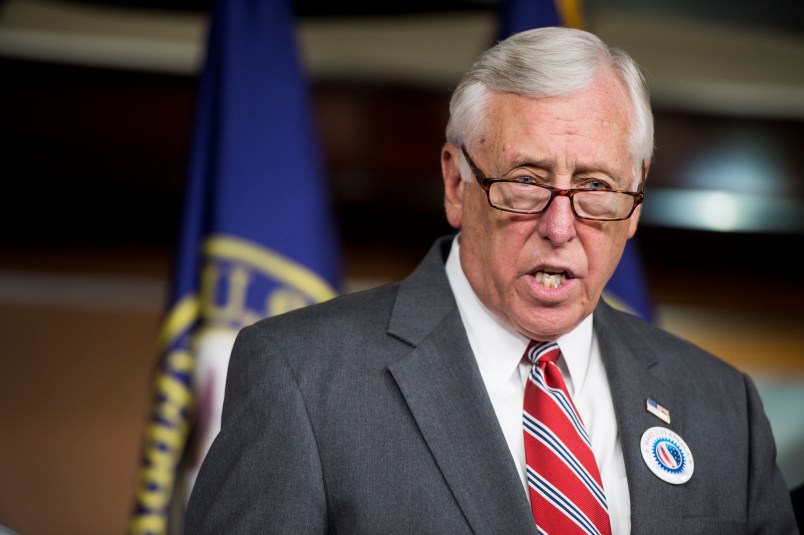House Minority Leader Steny Hoyer (D-MD) renewed his call for the restoration of the Voting Rights Act, suggesting Monday that it would have stopped Alabama from implementing a law requiring a photo ID at the ballot box.
Scrutiny of the voter ID law has increased with the announcement that Alabama will close 31 driver’s licenses offices in the state – many in rural counties with a high percentage of black residents – which voting rights advocates fear will make it harder for African-Americans to obtain the IDs required vote.
“The Voting Rights Act was born from the bloody actions in Selma, Alabama, in March 1965, and since the Supreme Court struck down one of its most important protections – the federal Justice Department’s ability to prevent discriminatory rules like Alabama’s photo identification requirement – our democracy has been weakened,” Hoyer said in a statement Monday evening.
In 2013, the Supreme Court invalidated the formula determining which states – which, at the time, included Alabama – were required to get “pre-clearance” from the federal government or a panel of judges before implementing changes to voting practices. The case itself originated in Alabama. There is speculation that Alabama stalled on implementing its photo ID voting law until the Supreme Court weighed in on the provision. Alabama’s photo ID law was passed in 2011, but not put into effect until 2014.
Hoyer is just one of a number of national lawmakers who have blasted the DMV closures and what they mean in the context of the state’s voter ID law. Hillary Clinton called the closures “a blast from the Jim Crow past.”
Alabama officials have denied that the closures will make it any harder for residents to obtain the ID required to vote. However, Rep. Terri Sewell (D-AL) – whose district includes eight counties that will no longer have DMV offices – has called on the Department of Justice to investigate effect the closures will have on voting rights. The NAACP Legal and Education Defense Fund, meanwhile, has suggested possible legal action on the basis that the state may have violated the Constitution and the Voting Rights Act.







Preach, preacher, preach!
If God intended for black people to vote He would have made them white.
I remember when the VRA was essentially gutted THIS is what some people were worried about. Because sufficient proof would have to be presented to SCOTUS that voting violations had been/were being committed that suppressed the vote of minorities. In the meantime, the suppression would continue until proven to need some kind of remedy.
BACK in the good old days, voter suppression was done on an individual basis, BUT these days it’s done in a more impersonal way, voter suppression by the mass…RIGHT out there in plain sight for all to see. Can’t be denied. In your face, voter suppress. Wonder how the SUPREME BEINGS will view it.
Very good news. I hope action is taken to reverse this.